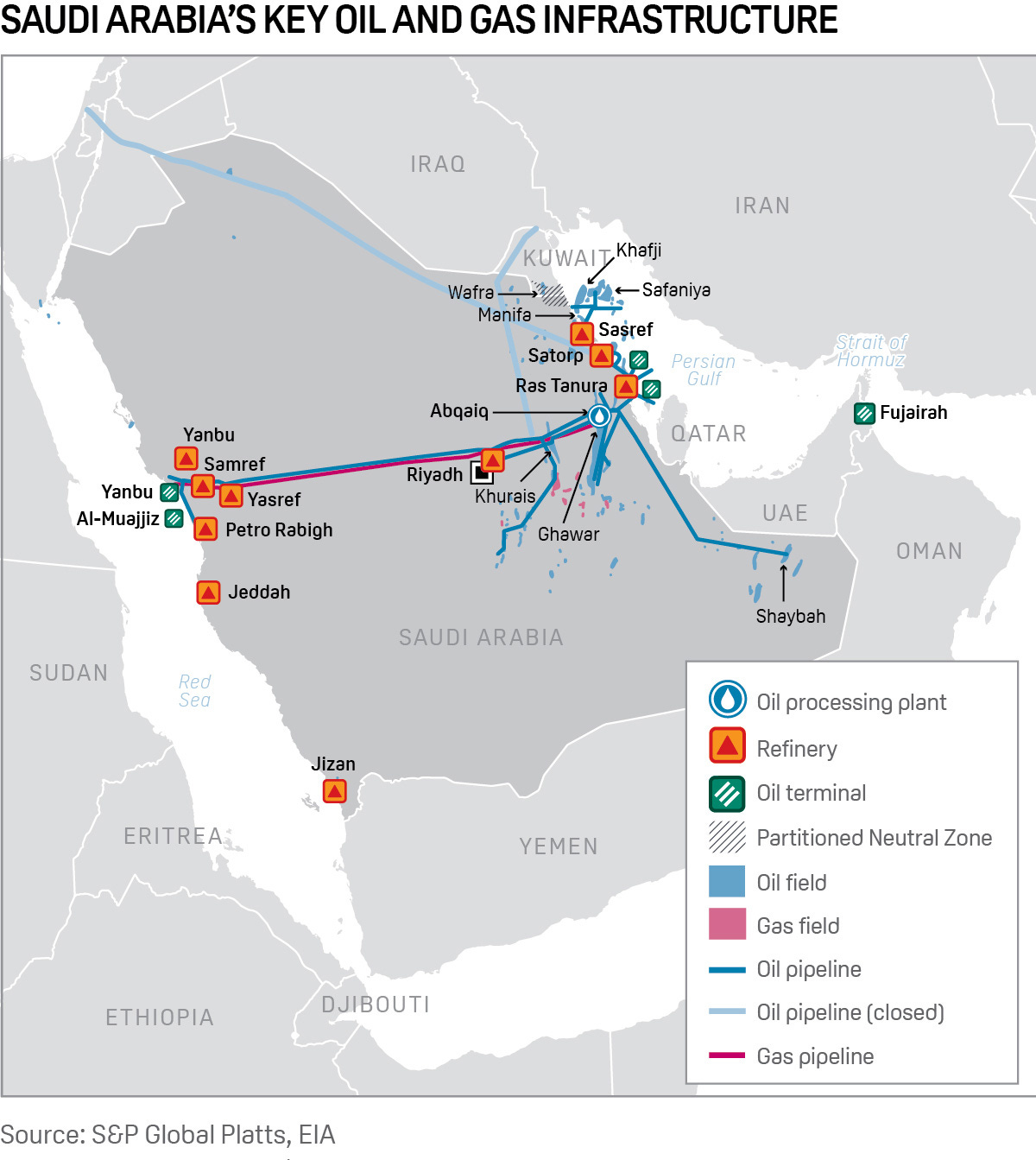This week we inmerse ourself back into the conflict, and try to assess what possible outcomes would mean for oil.
Iran's major missile strike on Israel on Tuesday October 1 has brought the Gulf region in the Middle East closer to the brink of full-blown war as Israel has sworn a strong retaliation as fierce as the missiles attack, viewing the attack as a dangerous escalation. However, unlike earlier confrontations that mostly focused on military targets, Israel now seems to be eyeing key energy infrastructure, including oil facilities in its response, and “Kharg Island” became in vogue.
Iran oil production is about 3.8Mnbd, shy below of 4Mbd before the sanctions were imposed back in 2019. Refining capacity is over half their oil production at 2.2Mnbd, with refineries spread out through the vast country geography, biggest refineries are:
Abadan Refinery – One of the oldest refineries in the world, with a capacity of around 600kbd.
Bandar Abbas Refinery – Capacity of approximately 350kbd.
Tehran Refinery – Capacity of around 250kbd.
Isfahan Refinery – Capacity of about 375kbd.
Persian Gulf Star (PGS) – Capacity of about 360kbd.
An attack in any of these refineries seems the most probable outcome should Israel continue with its plan, since taking offline some refining capacity would create enough internal struggles as Iran is not self-sufficient when it comes to gasoline, and gasoline is a sensitive area. Last year Iran started importing some gasoline for Russia, but when Russia faced its own “oil infrastructure attack” those exports decreased.
And this is exactly why I think is more than probable this will be the way to go for Israel, we have recent evidence from the Ukranian attacks that they work, they won’t stop a world but I will surely reshuffle the domestic market as it did in Russia, curtailing exports, new taxation schemes and pricing. A $50,000 drone can go a long way there.
Could they target Abadan refinery? the big one? I don’t think so, is far too close to Kuwait and Iraq, and its main product is fuel oil for the domestic and export markets.
PGS and Tehran are relevant when talking gasoline supply, without creating concerns with Arab neighboring countries.
So, what don’t they bomb the hell out of Kharg Island and cripple Irans foreign income source?? Is not that simple.
This little island is responsible for 90% of Iranian oil and condensate exports, and the main oil storage facility holding 30Mnbbl.
Attacking Kharg brings two things to the table, one you bring the conflict on the water, and although is closer to the Iranian coast, is also close to Kuwait and Iraq export outlets, that will surely affect overall shipping costs (War risk premiums) for any vessel loading from Ras Tanura to Al Basrah.
Also, you are bringing China into the conflict. The one and only customer for Iranian crude and condensates which since sanctions, reached a new high above 1.8Mbd, If OPEC was looking for a “compliance cheater” look no further.
Strickly speaking, is not China their main customer, as it could be with State owned refineries, but a ragtag of small private refiners in the Shandong province, operating in their own terms with little to no control from the CPP. They have been in the Beijing’s crosshairs for quite some time now, and since these “Teapots” are anything but efficient, they have to resort to cheaper, lower quality grades. Their main diet includes Venezuelan, Russian and Iranian.
We have seen a couple of these refineries going bankrupt in the last months, since margins are low and they depend on feedstocks pricing. Iran is the crude of choice due to availability; it sits in the middle of Venezuelan and Urals in terms of pricing and the trading mechanisms are well oiled. The point is, removing these barrels would create additional pressure on weak refining margins. Teapots represent around 20% of Chinese refinery runs, and the crude throughput was 2Mnbd.
Iran used to be synonymous of floating storage, but in recent months the storage went from 60Mnbd to just 10 today, mostly anchored in the Malakka Strait. It offers no buffer today, just 5 VLCCs.
Speaking of VLCCs, we see that Iran parked most of their ballasters (empty vessels) of the coast of Fujairah, just in case…
Anyhow, should China face a loss of heavy sour barrels, I have 3 letters for you: TMX
What if they close the Strait of Hormuz?
Since is not going to happen so I won’t dive too deep into this
Approximately 20% of the world's oil passes through the Strait of Hormuz, making it strategically critical for energy exports from major oil-producing countries like Saudi Arabia, Iran, Iraq, and Kuwait. The strait is about 21 nautical miles wide at its narrowest point, with shipping lanes only a few miles wide.
Saudi can bypass some through Fujairah and Oman, but also through Yanbu port on the Red Sea, which has a loading capacity of 6.6Mnbd. Total crude oil storage capacity at the terminal is 12.5 million barrels. But only Arab Light crude oil grade is loaded at the Yanbu terminal, but of course you will have to deal with the Houties down at Bab el-Mandeb Strait, and they have been refining their technique lately and ready to move up-market.
At this time is all speculation, how much is oil worth if you remove 1% of total supply? Especially when you have 3 to 4Mbd of spare capacity eager to hit the market.
Meanwhile, everywhere else oil keeps moving
Oil Physical
Just before the Iran retaliation, the physical market was flirting with contango on the prompt, then all hell broke loose.











